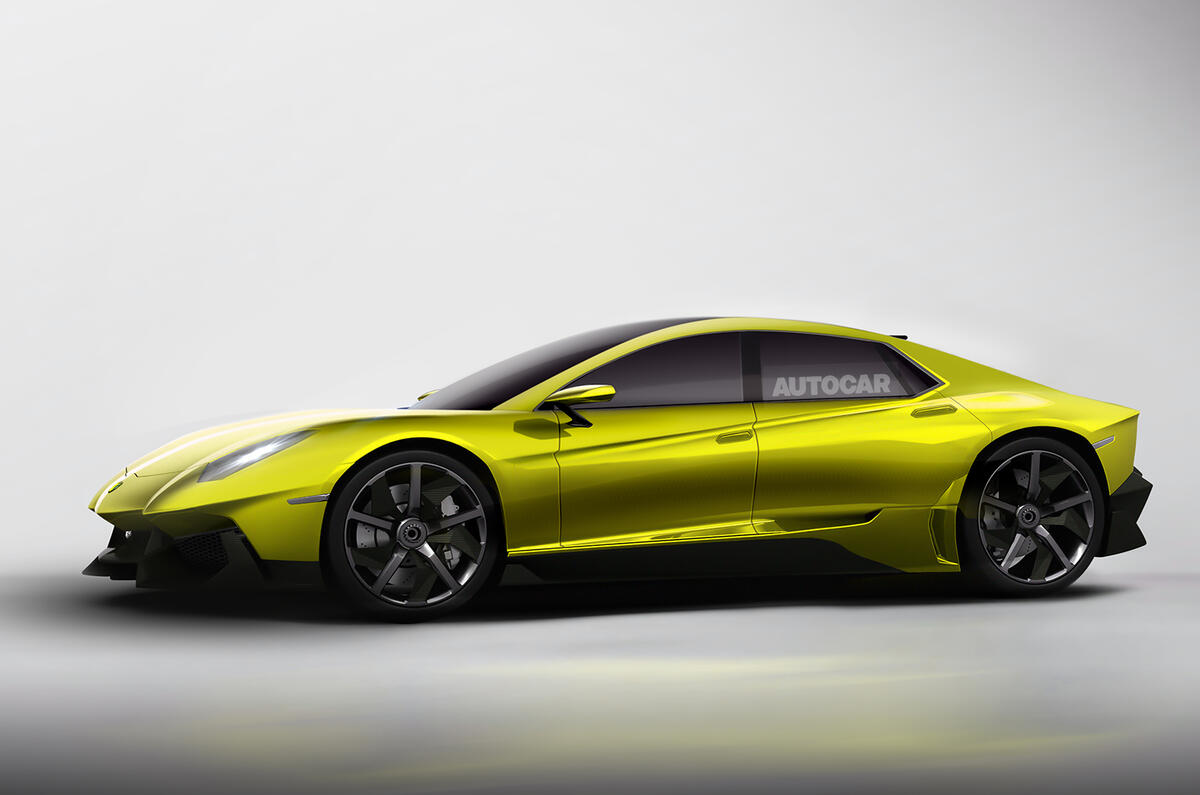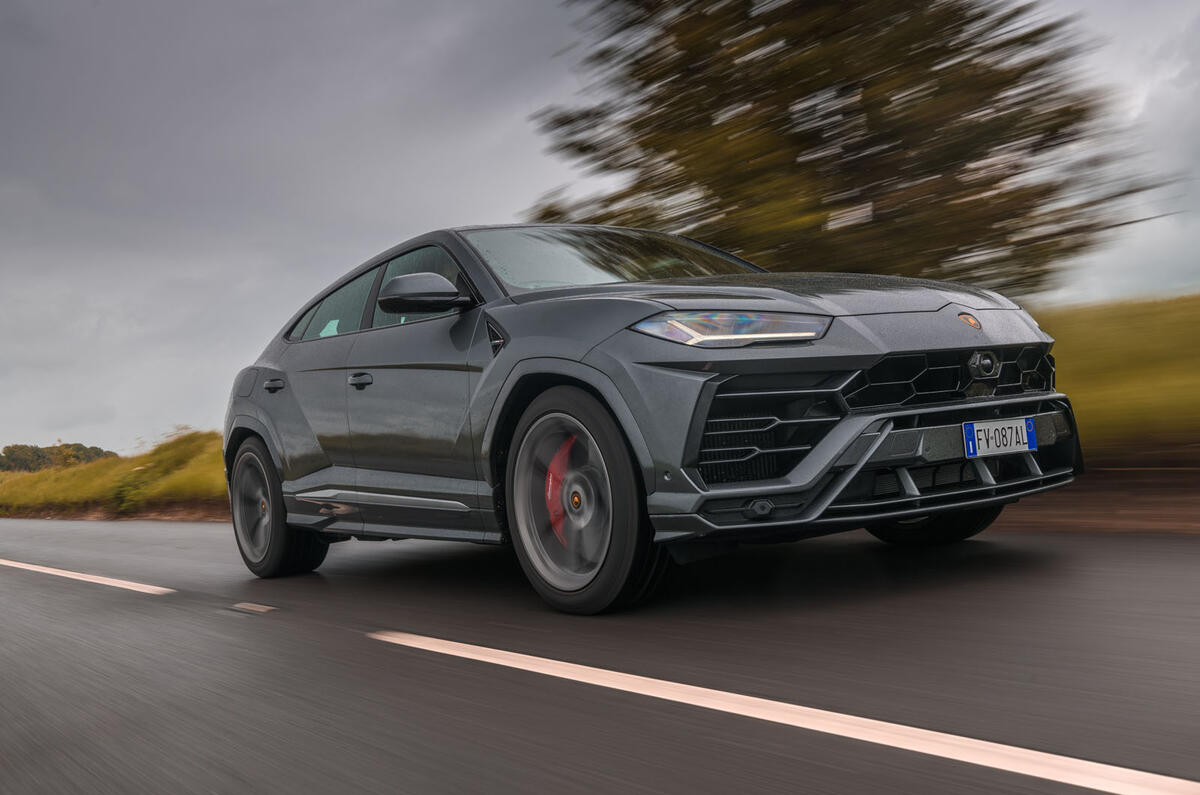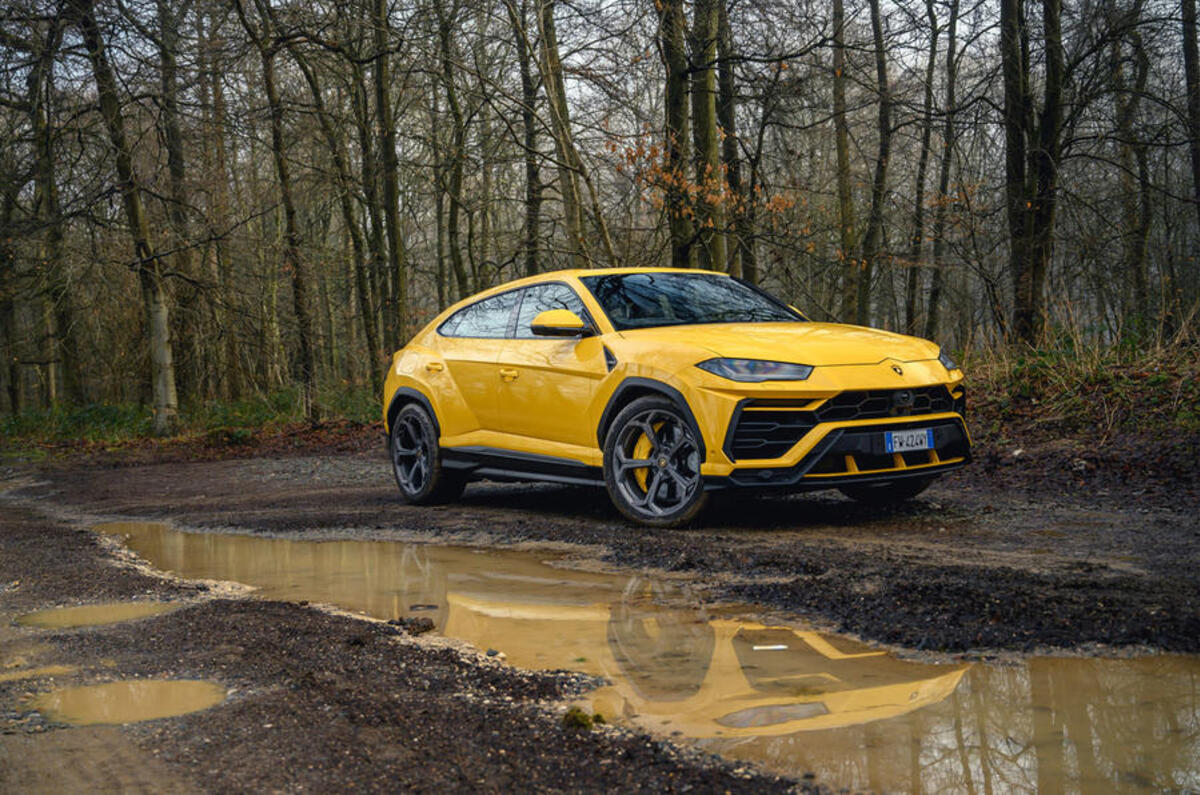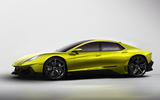With an appeal built on the flamboyantly theatrical design and performance of its supercars, it might seem that Lamborghini exists in an exotic world somewhat removed from reality and rationality. But no matter how extravagant its cars, no marque is immune from ‘boring’ practicalities such as complying with increasingly tough emissions regulations.
For a company such as Lamborghini, electrification fundamentally changes the performance characteristics of a car. The challenge for the Italians in the coming years will be to produce plug-in hybrids and EVs to meet legislative requirements and allow for financial growth, all while maintaining the fundamental DNA that holds such irrational appeal to customers.
It will be a question of balance. There are well-known performance benefits to electrification, but they will need to be balanced against the expectations of Lamborghini’s rich history of internal combustion engines. The trick will be finding ways to broaden expectations of what a Lamborghini is without losing that desirable essence.
Of course, Sant’Agata has shown recently that it can be done. The Lamborghini Urus is almost everything that a Lamborghini shouldn’t be: a big, heavy SUV, built using a shared platform and powertrain and having a real focus on sales growth. Yet the firm has found a way to make the Urus enough of a Lamborghini for it to find favour with customers.
If it can pull off the same trick with electrification, Lamborghini can satisfy its business head and win its customers’ hearts.
READ MORE













Join the debate
Add your comment
Yes.
A genuine Lamborghini is an electric SUV.
Traditionally, yes. Ferruccio Lamborghini established the company to build technologically advanced grand tourers, while rivals at Ferrari and Aston Martin were stuck in the past. His tenure with the company produced groundbreaking cars in every niche they tackled. And his favourite model: the Islero, the most understated and relaxing car with a Lamborghini badge.
The modern equivalent of that isn't a badge-engineered Audi SUV or even the Aventador, it's cars like the Tesla Model S and Porsche Taycan. I think that's what he'd be doing if you transplanted a 1960s Ferruccio into the present day.
Of course Lamborghini stands for something very different today... but quite *what* it stands for has changed a lot in the last decade. Supercars? Their best-selling model is now an SUV. Groundbreaking styling? The Aventador is essentially the Murcielago attacked with a belt sander and patched up with hexagons. High-revving naturally aspirated engines? Their best-selling car is only sold with a 6k rpm turbo V8. Heritage? Two of their three cars share Audi platforms, only the Aventador's engine is built at Sant'Agata and the Bizzarrini V12 is gone. Beauty? Eye of the beholder of course, but today that beholder will need to *really* love hexagons.
Still. It's a radical leap, even by those standards. If they're doing an EV, please don't make it a badge-engineered Taycan: develop something bespoke, and engineer in actual mechanical noise with the motors, gearing and acoustics rather than just pumping Hans Zimmer through a hidden speaker.
It's a valid question considering that a lot of an exotic car's soul comes from its engine.
And with 'normal' EV cars offering staggering performance, it makes you question whether looks and a decent handling chassis are enough to warrant the same prices as today's ICE supercars.
But supercars aren't about making sense. They will still sell at any price whilst there are enough people out there with the money to buy them, some of whom may not have the same priorities in buying a supercar as a true car enthusiast would.
Lamborghini being owned by VW Group has already proved that, so an EV is just another step in that process.